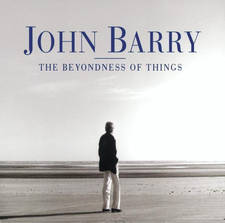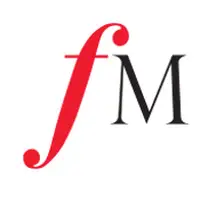‘Music was really central to the Queen’s life’ – Judith Weir, Master of the King’s Music
16 September 2022, 17:51

Moira Stuart speaks to Master of the King's Music, Judith Weir
The first female Master of the King’s Music in its 400-year history, Judith Weir speaks to Moira Stuart about Queen Elizabeth II’s life in music, and looks ahead to the reign of King Charles III.
Judith Weir, Master of the King’s Music since 2014, grew up in a family with a passion for music-making, where she recalls there was “an openness toward music” – it didn’t matter so much how well you played, so long as you were playing at all.
Speaking to Moira Stuart for the third series of Moira Stuart Meets... on Classic FM, Judith Weir spoke about her life growing up with music, and some of her favourite memories of time spent with, and working for, Her Majesty Queen Elizabeth II.
Weir’s early introduction to music in such a relaxed environment rings true in her work today, championing music teachers and educators in her role as Master of the King’s Music. At school, she was taught by renowned composer Sir John Tavener before studying under Robin Holloway at King’s College, Cambridge.
Going from sitting in the audience as her parents performed with amateur orchestras, to writing arrangements she could perform with her friends, Weir went on to be awarded a CBE by Her Majesty Queen Elizabeth II in 1995 for services to music. She received the Queen’s Medal for Music in 2007, and in 2014 was ultimately appointed Master of the Queen’s Music for a 10-year period.
Read more: How music will play a role at Queen Elizabeth II’s funeral

Funeral march is played during Queen Elizabeth II’s procession to Westminster
Weir served Queen Elizabeth II in the role for eight years, and recalled Her Majesty’s pride in Britain’s military bands. Each branch of the British Armed Forces has its own musical wing with multiple ensembles each, in addition to state and regional bands from across the UK.
Weir said the Queen “took a very active role in making sure that these bands survived. Sometimes when we hear there’s a defence cut, the bands are in danger. She was in the forefront of keeping them going”.
The Queen herself had a brilliant music education as a young girl – something Weir says she certainly didn’t take for granted. She learned piano with the great organist and composer W. H. Harris, and would do plenty of singing and theatrical performances.
Perhaps it was Queen Elizabeth’s musical background, or perhaps it was her innate conversational ability, that led to meaningful musical conversations with the likes of Scottish violinist Nicola Benedetti. Weir remembers presenting Benedetti to The Queen to be awarded the Queen’s Medal for Music in 2017, and says they had a wonderful conversation about the importance of live music-making in ensembles.
During the hour-long programme which is interspersed with Weir’s own musical selections, all with their own link to Elizabeth II, the Master of the King’s Music remembers what it was like to meet the Queen for the first time, and her shock at finding out about her appointment.
One of her musical selections is taken from Elgar’s Nursery Suite, whose composer Queen Elizabeth had met at the age of five – an encounter she remembered more than 80 years on.
In the interview, Weir also remembers the Queen’s love for Scotland and pays tribute with an arrangement of a piece for bagpipes, an instrument the Queen held so much admiration for that she even had a bagpiper on her household staff.
Looking to the coming days, Weir expects Her Majesty’s funeral will be “a beautifully performed occasion... even as a musical experience”, with high praise for The Choir of Westminster Abbey and its “peerless” music director, James O’Donnell.
With only two years left in the role of Master of the King’s Music, Weir is optimistic about King Charles III’s reign and what it will mean for musicians. King Charles is known to be a classical music enthusiast, having played cello as a young man, and Weir says “it will be marvellous for all of us musicians to have somebody like that as our head”.



